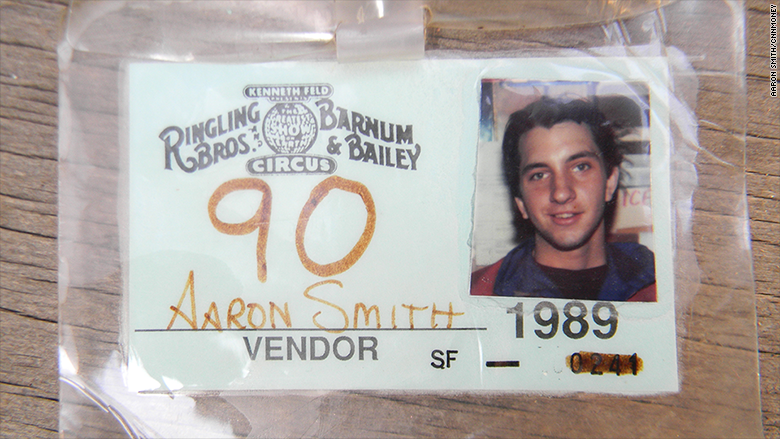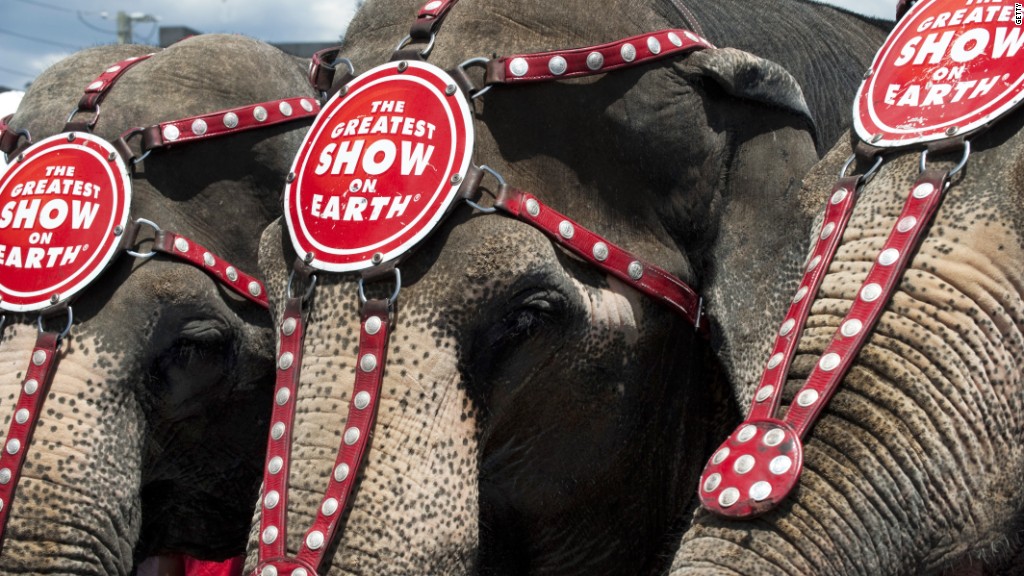
When I worked for Ringling Brothers back in 1989, I never would have believed that the circus would get rid of its elephants.
The elephants were the opening act for every show, three times a day, wherever we were, be it Cleveland, Rochester, or Washington D.C. Theirs was an iconic entry -- a row of 16 elephants, the trunk of one gripping the tail of the next in an unbroken pachydermal chain.
It brings back memories of that year, when I traveled with the circus.
I was a bored teenager looking for some excitement. And what's more exciting than the circus?
It just so happened that Ringling Brothers was in Asheville, North Carolina, where I lived at the time.
I had hiked the Appalachian Trail the previous year from Georgia to Maine and was trying to chart out my next adventure. I certainly wanted to keep traveling, but I also needed a job and a place to live.
The circus offered all that. I snagged the job on the spot.
"Get a haircut and shave and meet us in Raleigh in two days," the manager said.
Pretty easy, right? Well, the bar was pretty low for this particular job, which wasn't very glamorous.
I wish I could tell you that I was a trapeze artist and that I juggled swords and jumped into rings of fire, but I would be lying. Because I was just a lowly cotton candy vendor.
Related: No more elephants at the Greatest Show on Earth

I wore a stupid-looking hat with a clown on it and a red and blue tunic with a large pocket to hold crumpled dollar bills. I carried a large plastic tray studded with 50 holes to hold the paper cones with pink and blue pillows of cotton candy. I ran up and down the steps of the circus coliseum selling the candy for $2 a pop, for which I was paid a 13.5% commission. I'll do the math for you: I made 27 cents for each cotton candy.
I usually made about $150 a week, all in cash, which I kept in my Harley Davidson wallet.
Fortunately, as a member of the circus I got my own room on the train for only $7 a week.
As a vendor, I was not on the lowest rung in the circus hierarchy. That distinction went to the so-called "working men," the laborers who shoveled elephant dung. They made $120 a week, and they slept on bunks. And they unfortunately always smelled like dung.
We worked each city for about a week, and then we would pack up and get on the train bound for the next town. We were all on the train together: vendors, equipment, performers, and even the animals.
In my short time at the circus I had enough crazy experiences to fill a book.
One time, I was running through the stands selling cotton candy when an alligator escaped during a live act. It was the job of a strongman named Tahar-- the Master of Jungle Beasts-- to wrestle gators. The alligators were usually sluggish, but that time, one gator made a break for the audience.
Hundreds of people stood up and screamed as that gator charged at them, leading with its teeth.
I survived the experience (along with everybody else) and spent the rest of the summer with another show called the Big Apple Circus. I heard they needed a vendor so I met up with them in Brooklyn and traveled throughout the northeast.
I got a job there to help set up and tear down the big top and truck it from town to town.
Then the season ended. They said there was a job waiting for me when the season ramped up again.
But I moved on to Vermont instead and became a snowmaker at a ski resort for $6 an hour. And then I went to college.
The Big Apple Circus also had a real popular elephant act, which is why it's so hard to imagine any circus without them.
